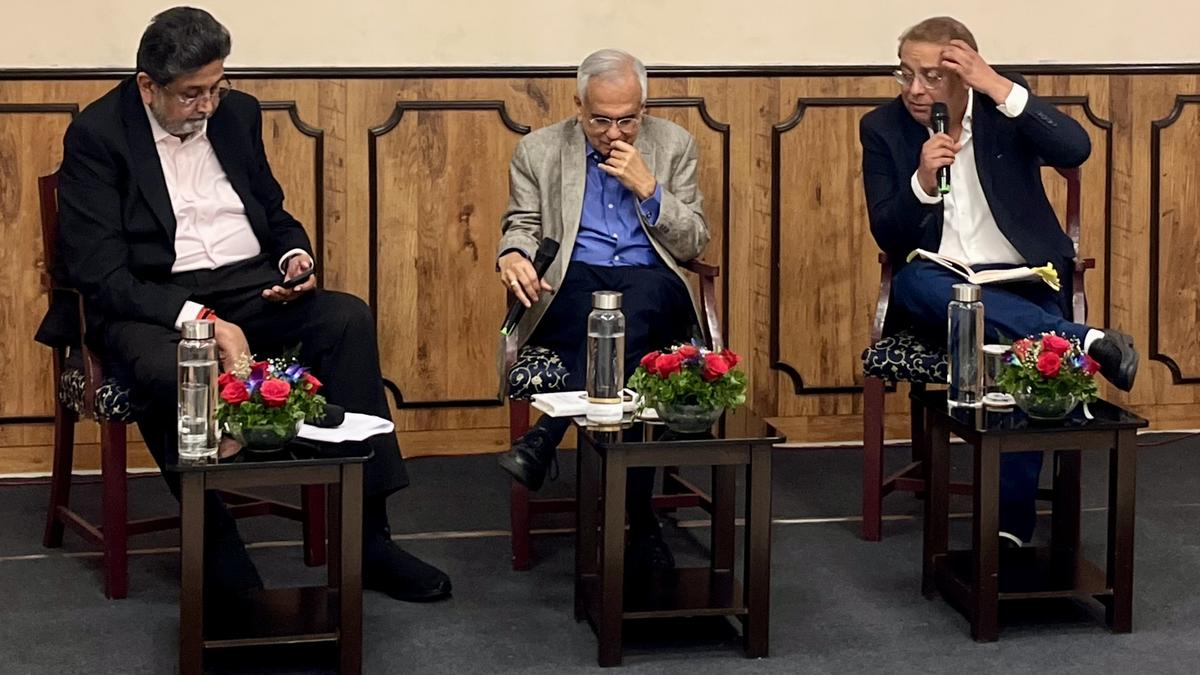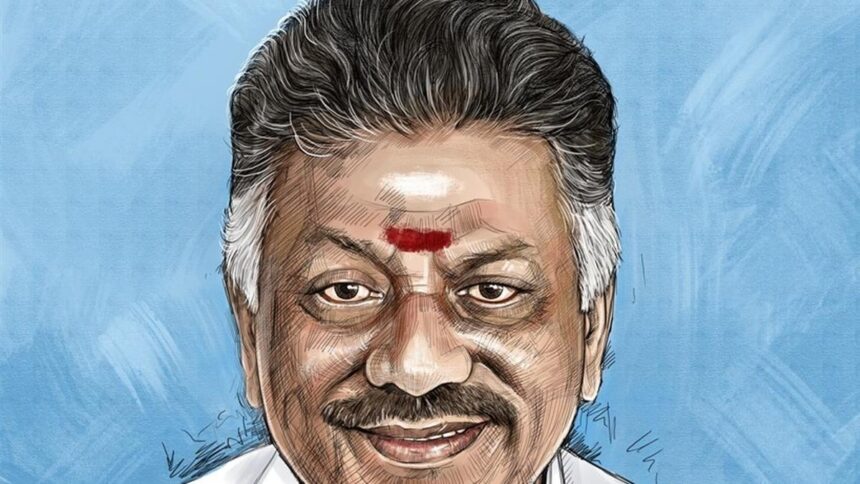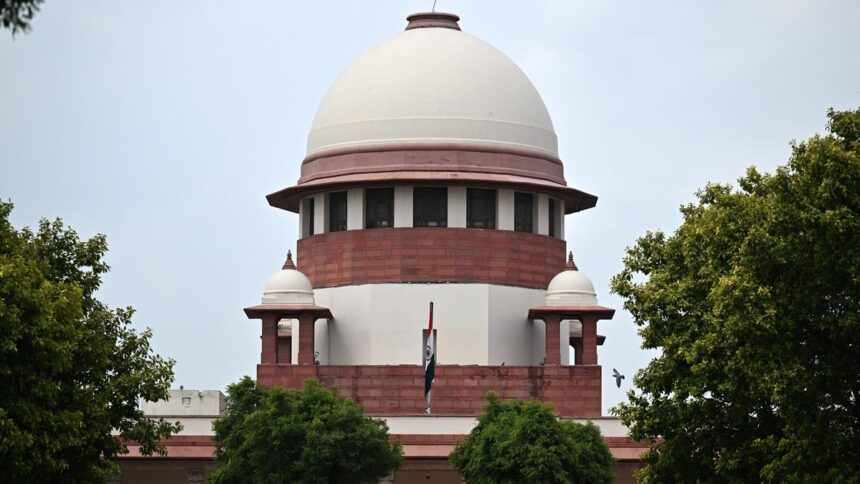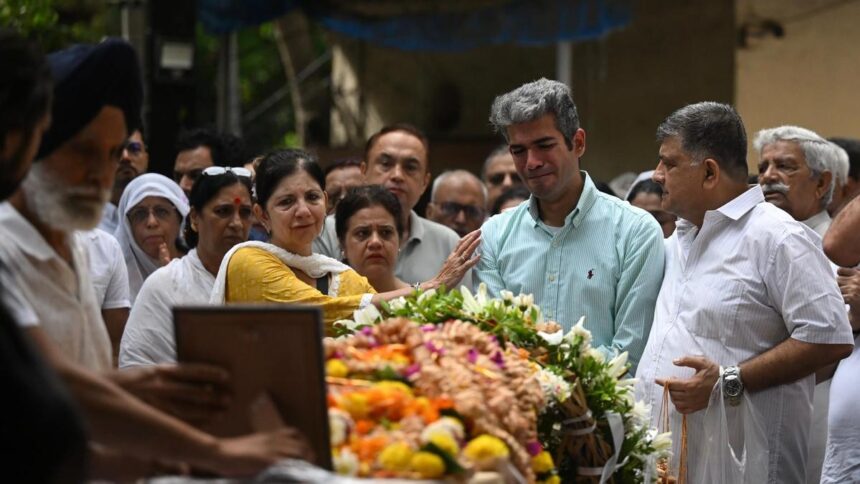
From left to right: Harshvardhan Neotia, Rajiv Kumar and Ishan Joshi at the discussion on the book, Everything All at Once.
| Photo Credit: Bishwanath Ghosh
“Business-as-usual is not an option anymore for India if it wants to emerge as Viksit Bharat and that several measures need to be taken including improving the relationship between government and industry,” according to economist and former NITI Aayog vice-chairman Rajiv Kumar.
“The relationship between the government and the industry has to change completely. There is mistrust between the two; if there is any trust it is only at a private level. No country in the world succeeded without the two seamlessly working together,” said Dr. Kumar, who was in Kolkata recently to discuss his newly-published book Everything All at Once — India and the Six Simultaneous Global Transitions, co-authored with senior journalist Ishan Joshi.
NITI Aayog suggests reduced ‘core’ grant support for State S&T bodies
“The government, business, academia and the civil society have to come together on some platform and then agree to some national objectives and work together with short-term accountability,” the economist said, adding that a deeper introspection was also needed from the industry, as to how it could contribute in a “transparent, ethical manner” to the national endeavour.
Dr. Kumar also emphasised on the building of a social capital, saying: “I know that politics is important, but a divisive social capital will not take us where we want to be. It increases uncertainty in society and uncertainty is anathema to investment.” Another obstacle to growth, he said, was excessive consumption and that people would do well to go back to traditional values such as “to recycle, reuse, to not throw away, to be satisfied.”
Congress leader Jairam Ramesh flags ‘withdrawal’ of NITI Aayog’s working paper on Indo-U.S. trade
“India is the only country in world history which has to grow exponentially in economic terms and to reduce its carbon footprint at the same time. We don’t take the latter part seriously enough in our country, but it is an existential threat. If the sea level rises by six inches, we have a catastrophe in our hands,” said the former NITI Aayog vice-chairman at the event, which was anchored by entrepreneur Harshvardhan Neotia, who said the “relatively thin” book had captured the tectonic shifts happening the world.
Dr. Kumar said that one only had to look at history to understand that it was the private sector that has always driven the Indian economy, civilisation and culture. “We need to give prime space to the private sector. We need to give it space, opportunity and also trust, which it will have to earn by its own actions,” he said, adding that only the private sector can lead India to the pre-colonisation days when it shaped the world economy.
Talking about the world, particularly China, co-author Ishan Joshi said that India would be in danger of being ahistorical if it did not understand the rise of China. “Every superpower does what it does in their own interest, and China is doing nothing different. We have to accept that. And in this case, it is a geographically proximate superpower,” Mr. Joshi said.
He said that while some believe that China had the advantage of not having to go to elections every five years, “there seems to be a sort of Rousseau social contract [in that country] because a surveillance State cannot give you the kind of results that the Chinese are giving.” “I, as a liberal, may think it is a very dystopian version of the Rousseau social contract, but it exists,” Mr. Joshi said, emphasising that while India must continue its relations with the West, it must also acknowledge a superpower rising right on the border.
Published – August 21, 2025 03:50 pm IST



















